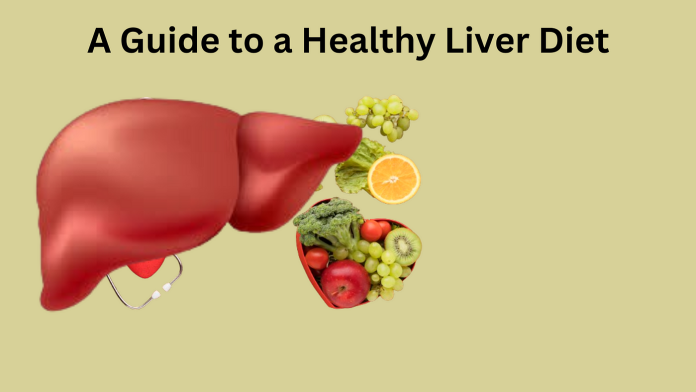Estimated reading time: 0 minutes
The liver’s pivotal role in filtering toxins, metabolizing nutrients, and regulating cholesterol makes it indispensable to overall health. In the face of liver disease, dietary management becomes a critical component of treatment, aiming to support liver function, slow disease progression, and enhance quality of life. This detailed exploration delves into the significance of diet in liver disease management, underscoring essential dietary principles and modifications for optimizing liver health.
The Intersection of Liver Disease and Nutritional Care
Liver diseases, such as hepatitis, fatty liver disease, cirrhosis, and liver cancer, necessitate tailored dietary strategies to bolster liver health. Effective dietary management aims to ensure nutritional adequacy, alleviate the liver’s workload, alleviate symptoms, and guard against malnutrition and muscle loss, often encountered in advanced stages of liver disease.
Foundational Dietary Principles for Liver Health
1. Macronutrient Balance:
– Proteins: Essential for liver regeneration and muscle maintenance. Opt for lean protein sources like poultry, fish, legumes, and low-fat dairy. Protein requirements may vary, especially in severe liver conditions, necessitating careful adjustment.
– Carbohydrates: Emphasize complex carbs found in fruits, vegetables, and whole grains to maintain steady energy levels and regulate blood sugar.
– Fats: Incorporate healthy fats from sources like olive oil, nuts, and fatty fish, beneficial for liver health, while monitoring intake in cases of impaired fat metabolism.
2. Micronutrient Sufficiency:
– A diet replete with vitamins and minerals supports liver functionality, with an emphasis on B vitamins, vitamin C, vitamin E, zinc, and selenium for their roles in detoxification and immunity.
3. Sodium Reduction:
– Limiting sodium is critical, particularly in cirrhosis, to prevent fluid retention and swelling. Favor fresh, unprocessed foods over high-sodium processed options.
4. Adequate Hydration:
– Sufficient fluid intake is key for flushing out toxins and maintaining electrolyte balance.
Tailored Dietary Modifications for Liver Care
1. Frequent, Light Meals:
– Small, regular meals help moderate the liver’s workload and stabilize energy throughout the day.
2. Alcohol and Toxin Avoidance:
– Alcohol severely impacts liver health; its reduction or elimination is imperative. Additionally, reducing exposure to environmental toxins and certain medications can safeguard liver function.
3. Antioxidant Enrichment:
– Incorporating antioxidant-rich foods combats oxidative stress, with berries, greens, and colorful vegetables as prime sources.
4. High-Fiber Focus:
– A diet high in fiber aids digestion and reduces toxin absorption in the gut, lessening the detoxification demands on the liver.
Concluding Thoughts
Nutritional management plays a crucial role in the therapeutic landscape of liver disease, with the power to significantly influence patient outcomes. Customizing dietary approaches to meet the unique requirements of individuals with liver disease can mitigate symptoms, bolster liver functionality, and improve overall health. Collaboration with healthcare professionals, including specialized dietitians, is essential for devising a nutrition plan that aligns with liver health goals, ensuring a supportive journey towards recovery and well-being.
Related-
Know More About Ayurveda Treatments For Liver Related Disorders.
GET IN TOUCH


Recent comments